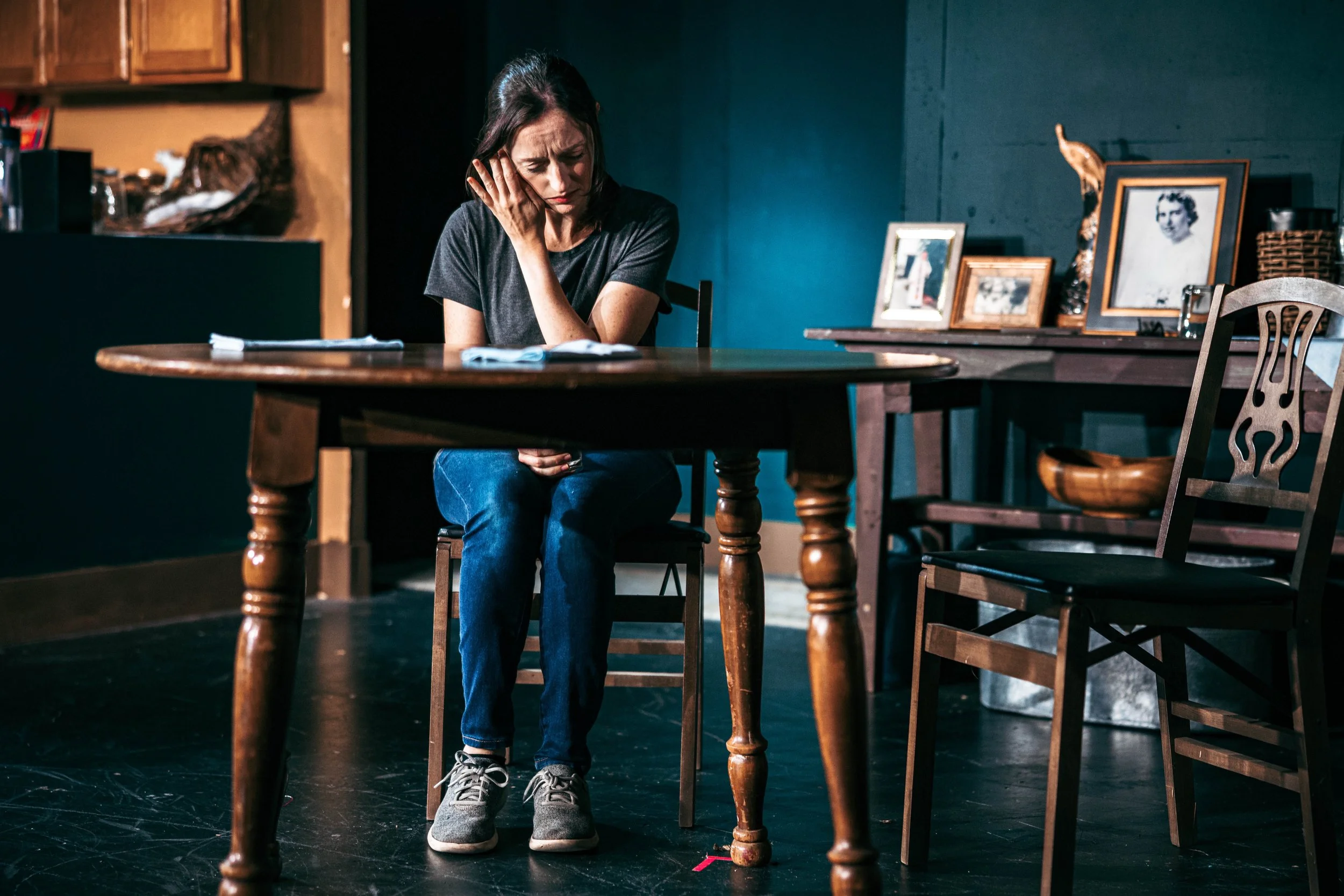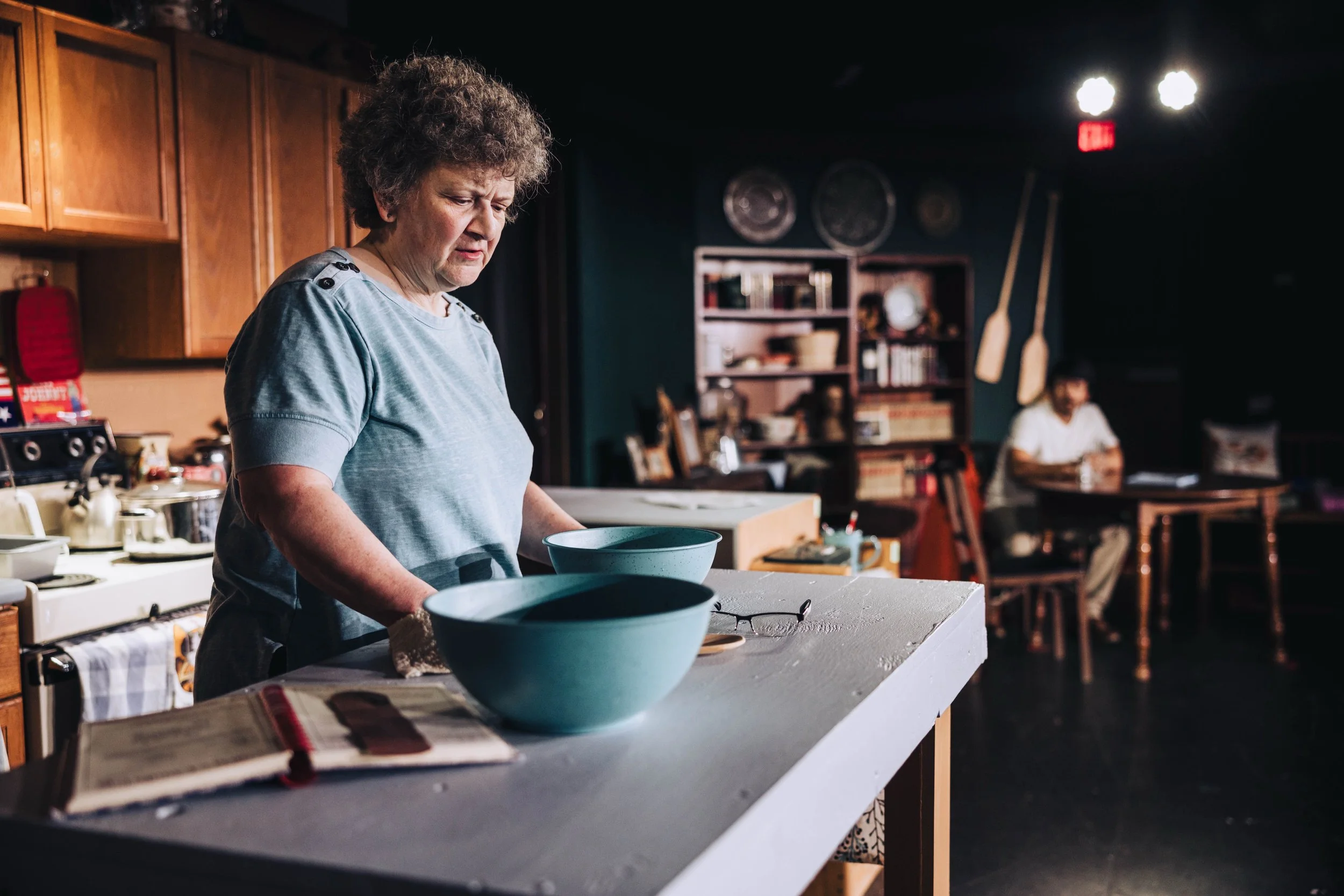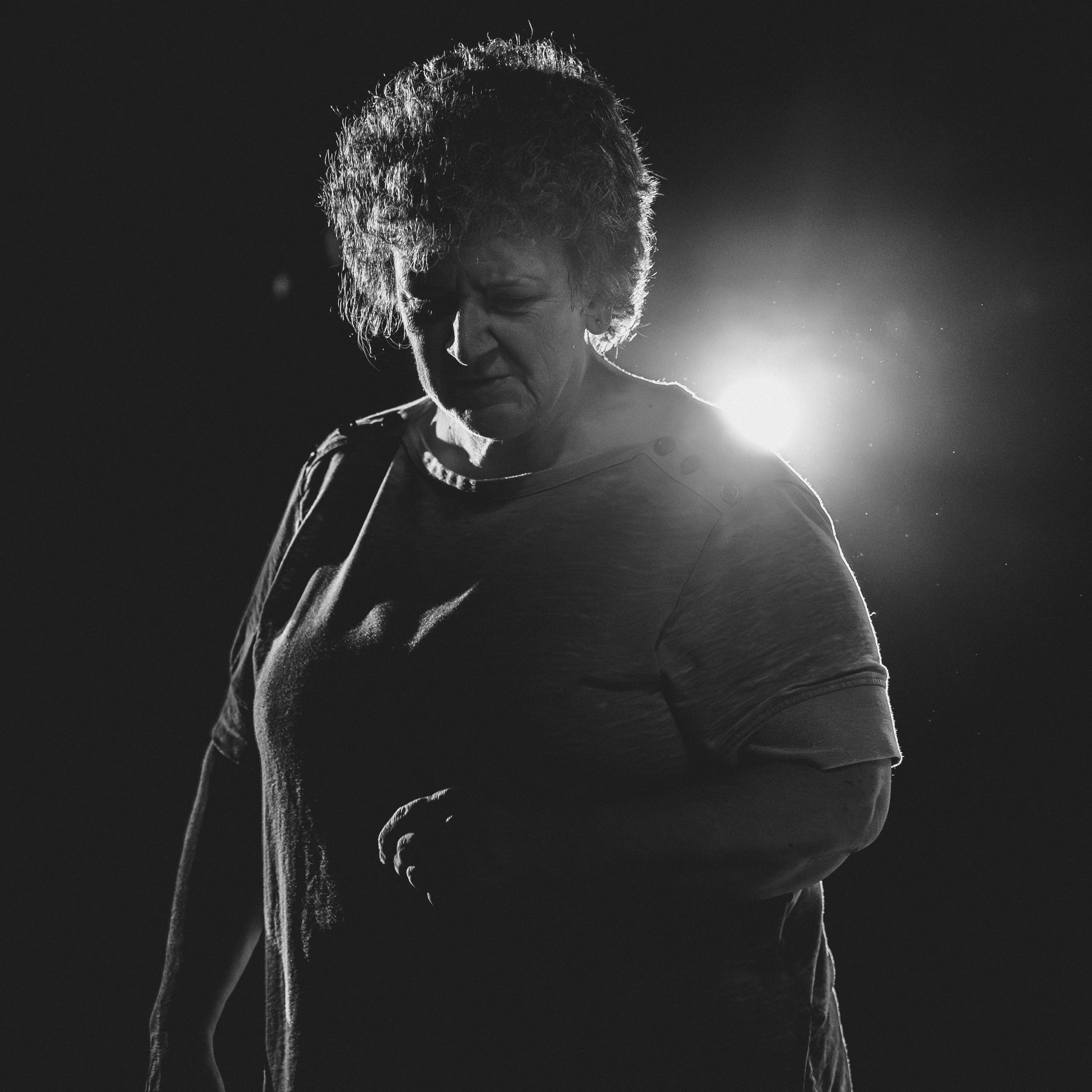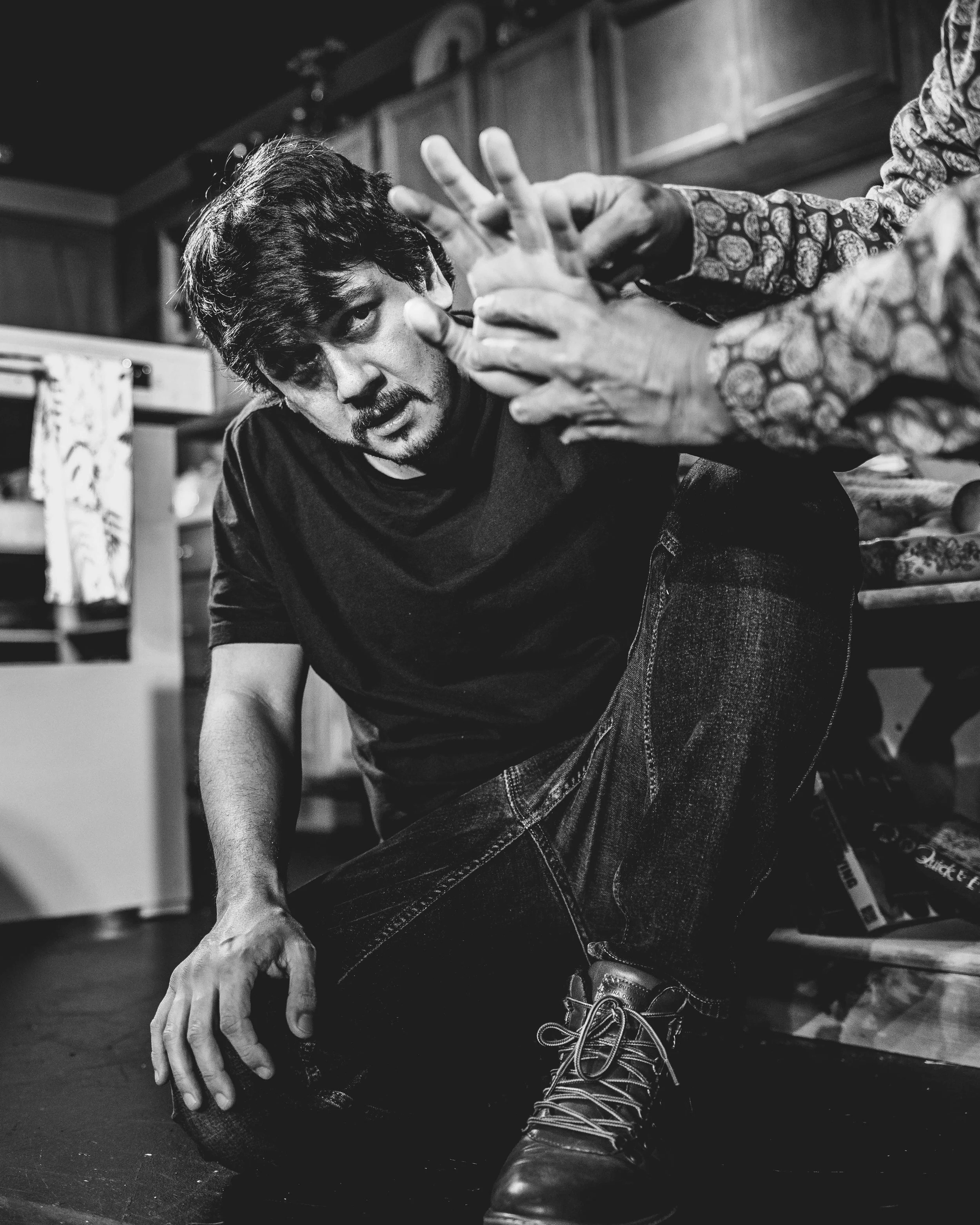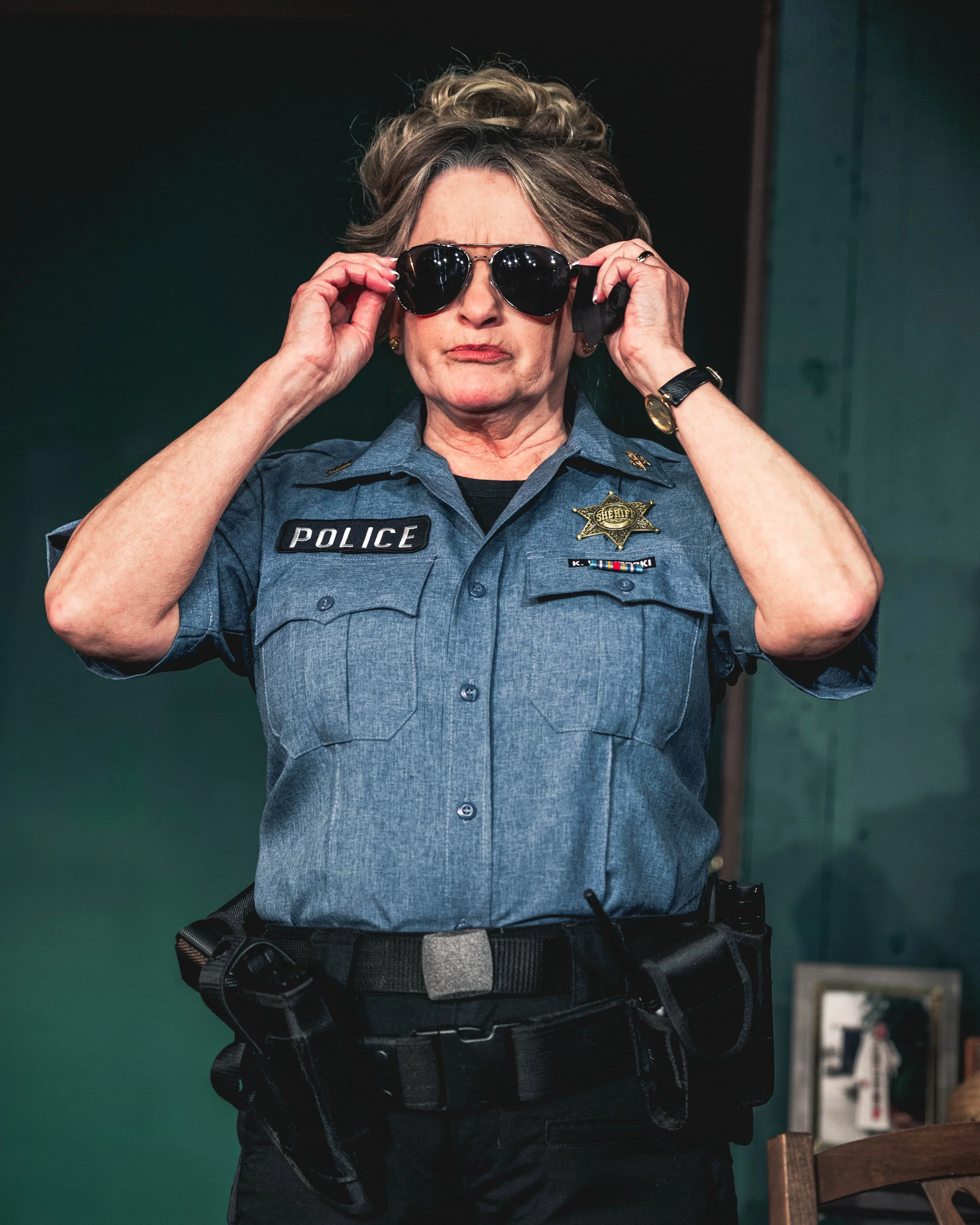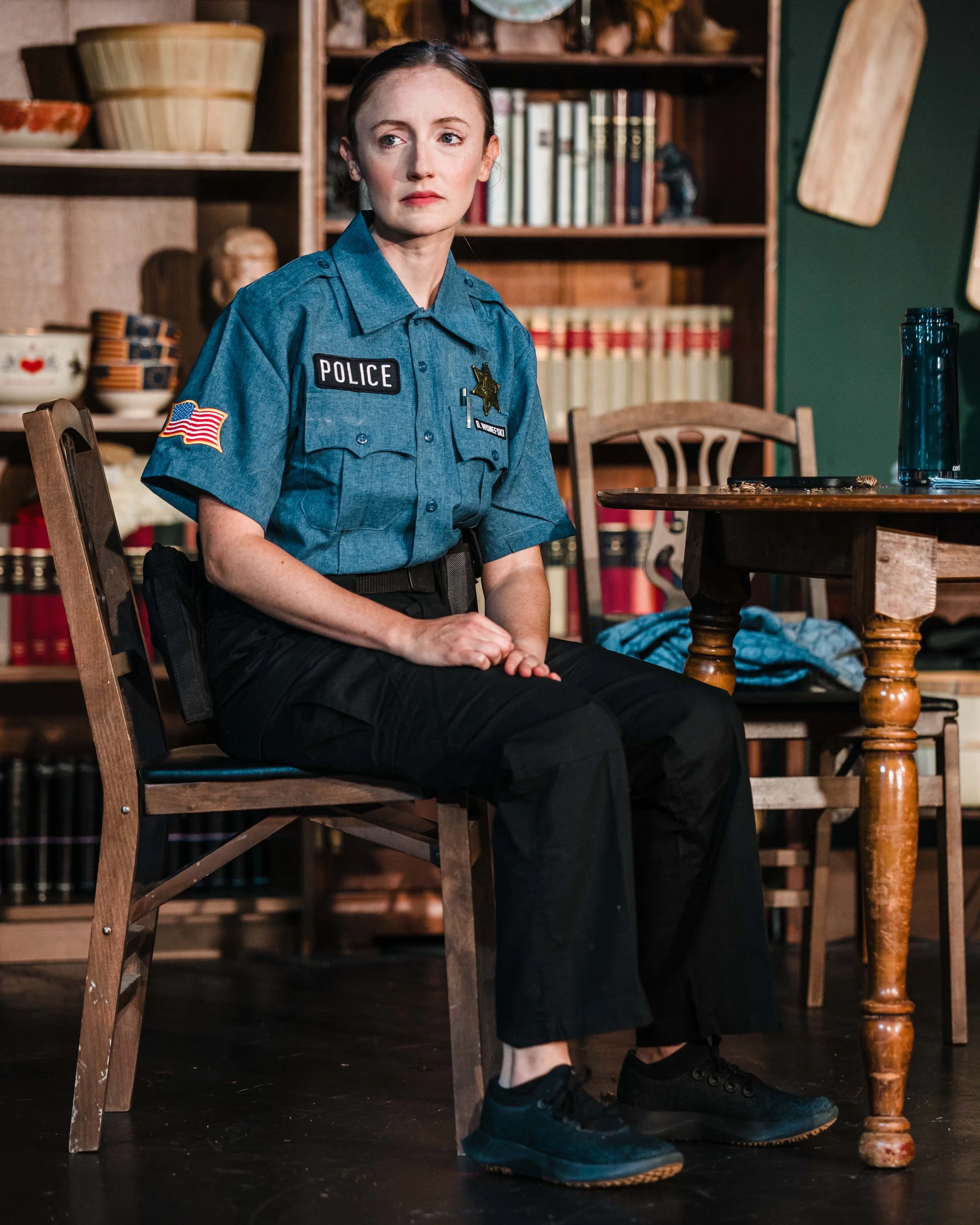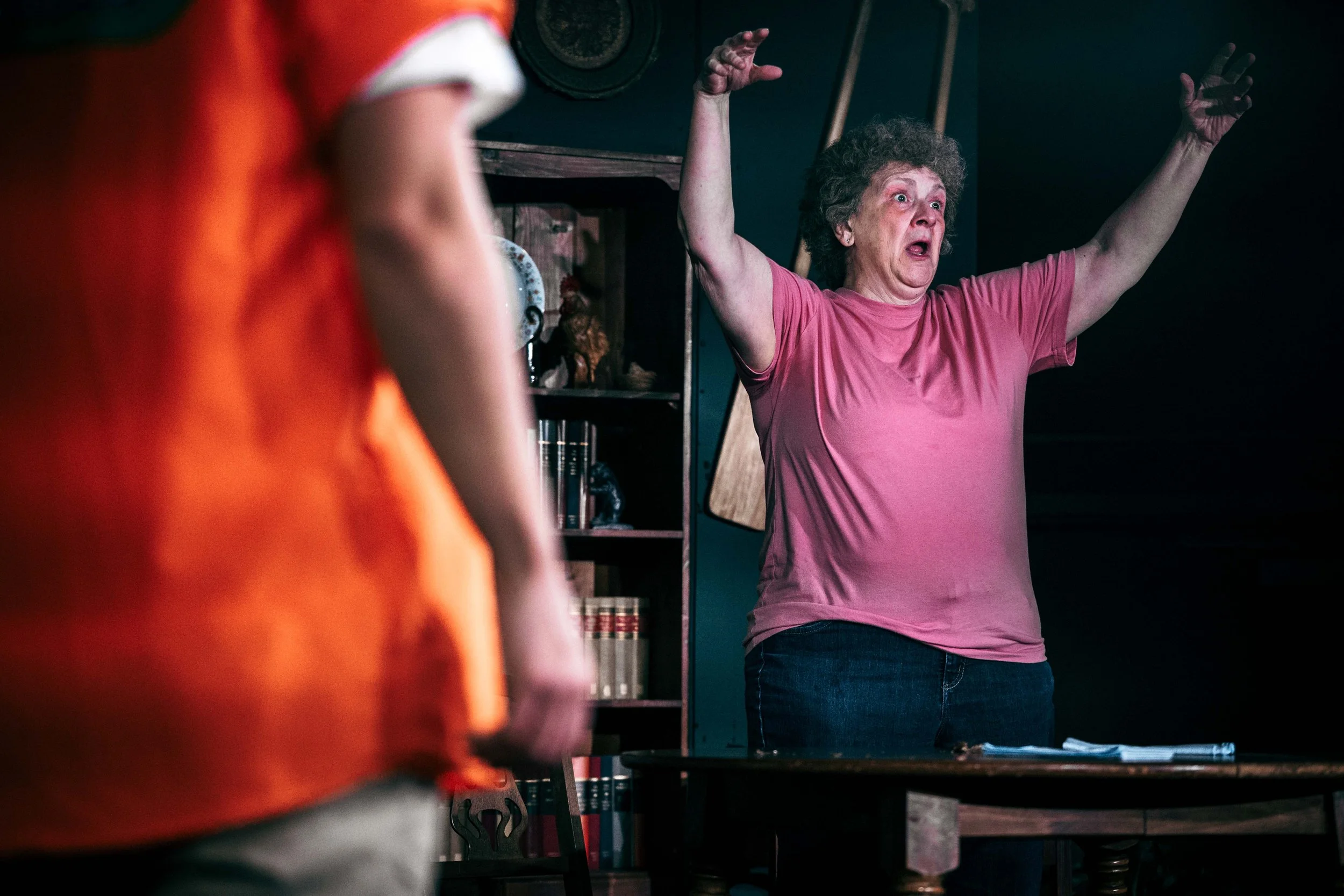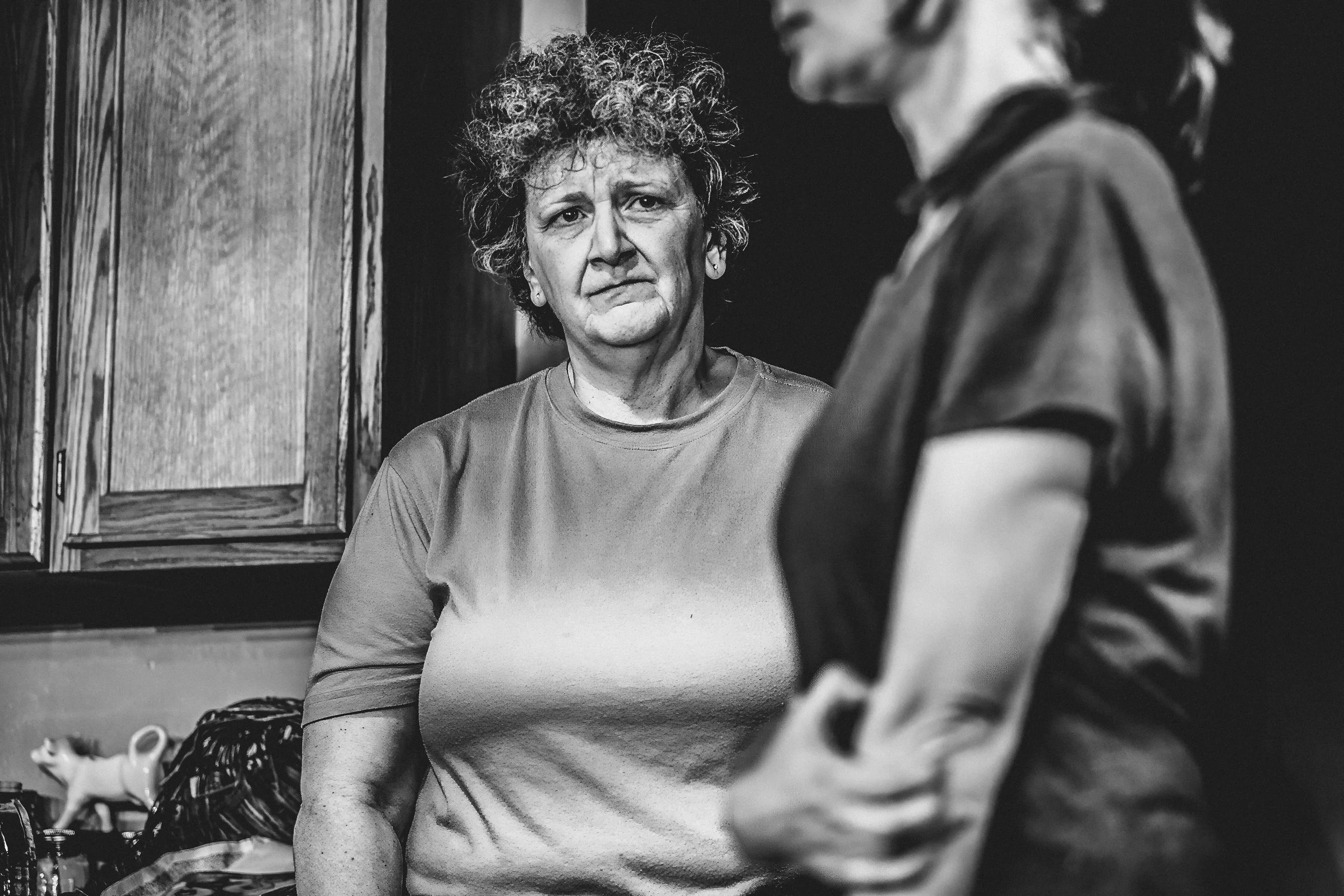REVIEW: There’s No Debate About Swing State – This Harbinger Production Closes the Season Out Strong
Through 11/22 @ Sand Lake Center for the Arts, Sand Lake
Photos by Andrew Elder for Best Frame Forward
“This pairing, of deeply comforting moments like the baking of bread in a well-worn kitchen, with thoughts and even actions of death and despair, is the crux of the magic that this cast brought to Swing State.”
As I drove southbound on the Northway on Saturday night, rain pelting my windshield so hard that I was going 10 under the speed limit (don’t freak out, so was everyone else), I wondered to myself what I had gotten myself into. I was on my way to see the final Harbinger production of the year, Swing State, a play written by contemporary Chicago playwright, Rebecca Gilman. In fact, this was the first time any Capital Region company had performed any of her work. To honor the setting of the prairie-filled, dairy-loving Wisconsin in which the play is set, the group held a cheese party before their opening night. “It can’t be that serious if there’s a whole party before the show even begins,” I mistakenly thought to myself as I entered the building. Cut to two hours later — no matter how much I tried in this small theater where everyone can see your face, I could not stop the tears from fervently leaking from my eyes.
Long before that moment, though, I could see that this performance would be different from any Harbinger performance I had seen so far this year. With only four actors in the cast, it would be an intimate occasion, furthered by the fact that all the action of the play took place in the widowed Peg’s kitchen and dining room. The set struck me immediately. While other productions I’d seen this year were pretty bare on stage, this play would boast a kitchen that reminded me of my great-grandmother’s, complete with the yellow walls, small white fridge plastered with cards, photos, and reminders, odd knick-knacks on the walls and tops of cupboards, and dish towels galore, strewn across tables and oven handles. Without a person even appearing on stage, I was already moved as I brought my own personal life into those four walls.
Then, Robin Leary walked on. She began to mix zucchini bread, muttering to herself as she tried to remember the recipe. Where stood a sweet, typical grandmother-type, though, soon became a woman troubled beyond belief as the audience watched her imagine self-harm acts with her baking tools, causing gasps to be emitted from several crowd members. This pairing, of deeply comforting moments like the baking of bread in a well-worn kitchen, with thoughts and even actions of death and despair, is the crux of the magic that this cast brought to Swing State.
The play itself follows our leading woman, Peg, as she grapples with loneliness, isolation, and depression after her husband’s unexpected passing in the years directly following the height of the pandemic. Her relationship with family friend Ryan (Leo Hernandez), who is much more like a son to her, is both a source of stability and frustration, though it is quickly upended after a theft of Peg’s belongings brings grudge-holding Sheriff Kris (Lisa Bryk) and well-meaning deputy Dani (Brooke Hutchins) into the picture.
Bryk and Hutchins played the foil of each other to a tee, with Bryk seeming to up her conservative, uptight, downright rude air each time she walked on stage, while Hutchins slowly allowed Dani to break down her own walls and the walls of others bit by bit.
What would end up bringing me to tears, though, was the relationship portrayed by Hernandez and Leary. It wasn’t quite mother and son, and it wasn’t quite friends – it was something that transcended labels entirely. To watch the two of them bicker, fall apart, jolt back to each other when the other most needed it, fracture a bit more, and yet protect each other throughout each rise and fall? The intensity with which those two played each emotion throughout that whirlwind was something special. They knew when to yell, when to whisper, and when a look would capture more than any dialogue they just said. Their inner turmoil burned so hot and bright throughout their characters that, from only a few scenes in, you knew that it wouldn’t be possible for both of them to make it to the end of the play unscathed…or make it to the end at all.
Without spoiling the ending, I’ll say that it felt Shakespearean – you knew the tragedy was coming, and Gilman even foreshadowed what it was, yet you were still fighting every logical part of your being to believe it wouldn’t be true. Unlike one of those 16th-century downers, however, Swing State leaves you with a glimmer of hope. Just like the play’s tagline says: “no one lives alone.”

